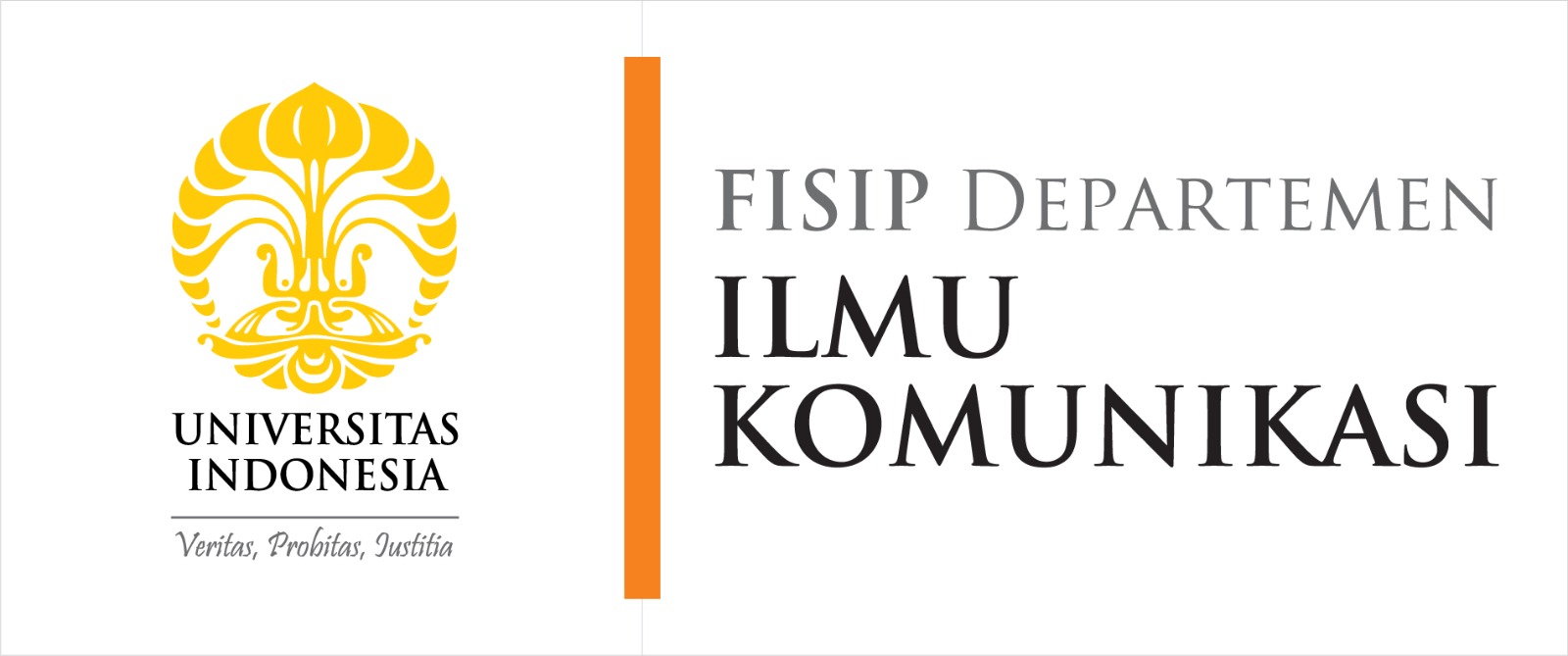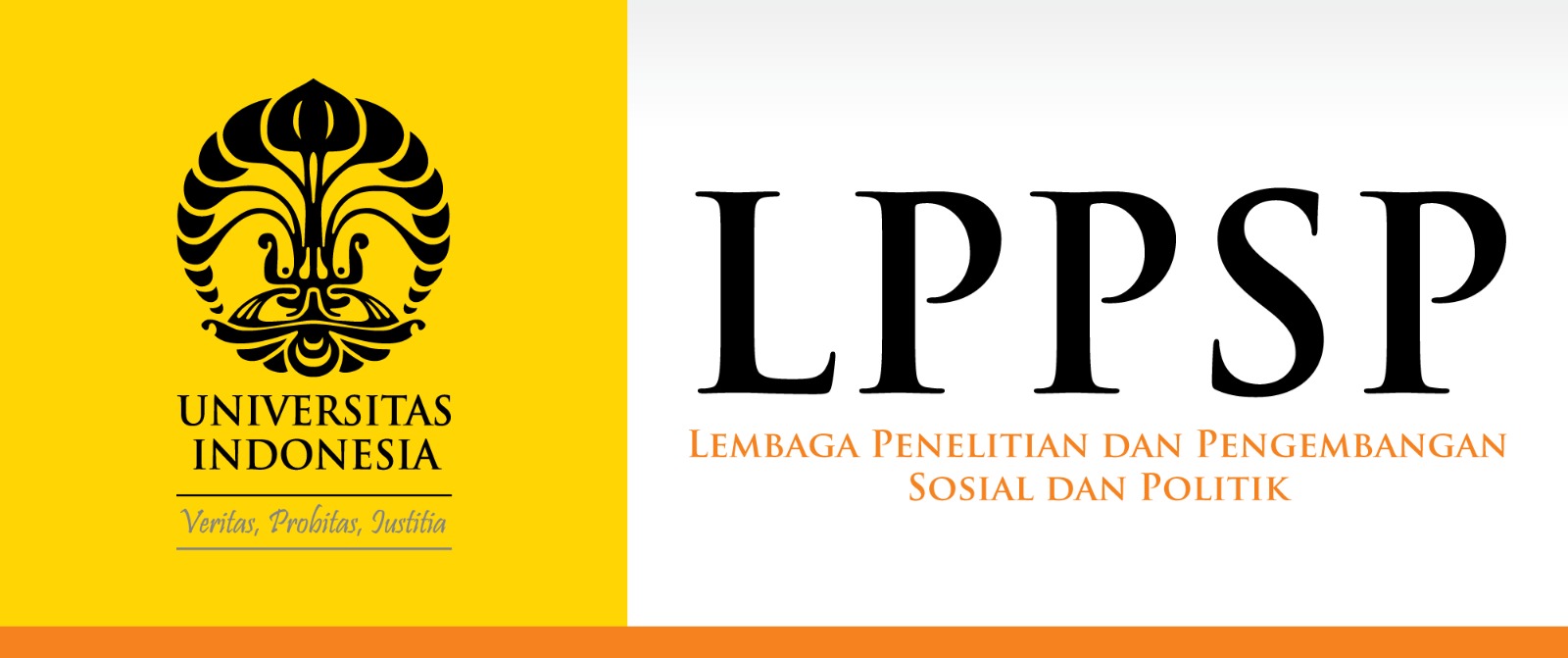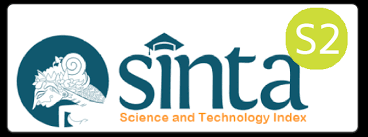JURNAL KOMUNIKASI INDONESIA
Abstract
The role of Indonesian academies as science communicators evolves together with changing government regimes. Globally, science academies are typically not-for-profit, independent academic communities committed to providing advice for the nation in matters pertaining to science and technology. In Indonesia, science academies are historically formed under state regimes. This article, drawing on Niilo Kauppi’s framework, examines five years of science communication by the Indonesian Academy of Sciences, and two organizations under its auspices: the Indonesian Young Academy of Sciences and the Indonesian Science Fund. It reflects on their efforts to bridge the gaps between science, policy, and the public. Within the academy’s network, at times members relinguish their scientific identities to occupy the space between government and public — which in certain contexts might become disadvantageous. This is especially so in conditions where unequal power is held between the State and scientists, where the mobilization of resources, relationships, and symbols of sciences — staples for science communication —becomes ineffective.
Bahasa Abstract
Peran akademi Indonesia sebagai komunikator sains berkembang seiring dengan perubahan rezim pemerintahan. Secara global, akademi sains umumnya merupakan komunitas akademis independen yang bersifat nirlaba dan berkomitmen untuk memberikan rekomendasi bagi negara dalam hal-hal yang berkaitan dengan sains dan teknologi. Di Indonesia, akademi sains secara historis dibentuk di bawah rezim negara. Berangkat dari teori Niilo Kauppi, artikel ini mengkaji komunikasi sains selama lima tahun yang dilakukan oleh Akademi Ilmu Pengetahuan Indonesia, dan dua organisasi yang berada di bawah naungannya, yaitu Akademi Ilmuwan Muda Indonesia dan Dana Ilmu Pengetahuan Indonesia. Artikel ini merefleksikan bagaimana mereka berupaya mentransformasi batas-batas antara bidang-bidang yang saling terkait namun tidak terhubung, yaitu antara sains dan kebijakan serta masyarakat. Dalam jaringan akademi, terkadang para anggota membongkar identitas sains mereka untuk mengisi jurang antara pemerintah dan publik—yang dalam konteks tertentu mungkin malah merugikan. Hal ini terutama terjadi dalam kondisi di mana terdapat kesenjangan kekuasaan antara negara dan ilmuwan, di mana mobilisasi sumber daya, hubungan, dan simbol-simbol ilmu pengetahuan—yang merupakan landasan komunikasi sains—menjadi malah tidak efektif.
References
AIPI (2016). SAINS45: Agenda Ilmu Pengetahuan Indonesia Menyongsong Satu Abad Kemerdekaan, Jakarta: AIPI.
AIPI (2019). Science for Indonesia's Biodiversity. Jakarta: AIPI.
AIPI (2020). Membangun Penyelenggaraan Pendanaan Penelitian di Indonesia yang Berkelanjutan dan Mandiri: Sebuah Studi Kebijakan. Jakarta: AIPI.
ALMI (2022). Membela yang Lemah Demi Bangsa dan Ilmu. Retrieved from https://almi.or.id/membela-yang-lemah-demi-bangsa-dan-ilmu/ on March, 22, 2022
Anderson, B. (1999) Imagined Communities (2nd ed). London: Verso.
Böcher, M. & Krott, M. (2016) Science Makes the World Go Round: Successful Scientific Knowledge Transfer for the Environment. Berlin/Heidelberg, German: Springer.
Bornbaum, C. C., Kornas, K., Peirson, L., & Rosella, L. C. (2015). Exploring the function and effectiveness of knowledge brokers as facilitators of knowledge translation in health-related settings: A systematic review and thematic analysis. Implementation Science, 10(1), 162. https://doi.org/10.1186/s13012-015-0351-9
Bourdieu, P. (1977). Outline of a Theory of Practice. Cambridge: Cambridge University Press.
Bourdieu, P. (1984). Distinction. Cambridge, MA: Harvard University Press.
Bourdieu, P. & Wacquant, L.J.D. (1992) An Invitation to Reflexive Sociology. Cambridge: Polity Press.
Brodjonegoro, S.S. & Greene, M.P. (2012) Menciptakan Dana Ilmu Pengetahuan Indonesia. Jakarta: AIPI.
Broere, S. (2018). Indonesianising knowledge, or: The postcolonial invention of ‘colonial science’? History of Knowledge. Retrieved from https://historyofknowledge.net/2018/07/17/indonesianizing-knowledge-or-the-postcolonial-invention-of-colonial-science/ on July, 17, 2018.
Chew, S., Armstrong, N., & Martin, G. P. (2022). Understanding knowledge brokerage and its transformative potential: A Bourdieusian perspective. Evidence & Policy, 18(1), 25–42. https://doi.org/10.1332/174426421X16149632470114
Curran, G. M., Mukherjee, S., Allee, E., & Owen, R. R. (2008). A process for developing an implementation intervention: QUERI Series. Implementation Science, 3(1), 17. https://doi.org/10.1186/1748-5908-3-17
Dzulfikar, L.T. (2020) Menristek Berencana Bentuk BLU untuk Kelola Dana Abadi Penelitian. Retrieved from https://theconversation.com/menristek-berencana-bentuk-blu-untuk-kelola-dana-abadi-penelitian-138928 on Jun. 9, 2021
Fatonie, I. (2022). The role of Indonesian Think Tanks as policy entrepreneurs in policy development of village governance. Journal of Asian Public Policy, 15(3), 500–516. https://doi.org/10.1080/17516234.2020.1829354
Feintrenie, L., Schwarze, S., & Levang, P. (2010). Are local people conservationists? Analysis of transition dynamics from agroforests to monoculture plantations in Indonesia. Ecology and Society, 15(4).
Fine, M., & Barreras, R. (2001). To Be of Use. Analyses of Social Issues and Public Policy, 1(1), 175–182. https://doi.org/10.1111/1530-2415.00012
Funari, P. P. A., Zarankin, A., & Salerno, M. A. (Eds.) (2009). Memories from darkness: Archaeology of repression and resistance in Latin America. Springer.
Goldman, M. (2009). Repression of China's public intellectuals in the post-Mao era. Social Research: An International Quarterly. 76(2), 659-686.
Goss, A. (2011). The floracrats: State-sponsored science and the failure of the enlightenment in Indonesia. University of Wisconsin Press.
Guggenheim, S. (2012). Indonesia’s quiet springtime: knowledge, policy and reform. In A. Reid (ed.), Indonesia rising: The repositioning of Asia’s third giant (pp.141-169). Singapore: Institute of Southeast Asian Studies
Hadiz, V.R. & Dhakidae, D. (2005). Social science and power in Indonesia. Equinox Publishing.
Jackson, E., Pellini, A., & Prasetiamartati, B. (2020). Improving the enabling environment for evidence-informed policymaking: An example from Indonesia. Evidence & Policy, 16(3), 503–514. https://doi.org/10.1332/174426418X15394255863408
Karetji, P.C. (2010). Overview of The Indonesian Knowledge Sector. Department of Foreign Affairs and Trade Australian Government. Retrived from https://www.dfat.gov.au/sites/default/files/indo-ks8-overview.pdf on Dec. 17, 2021.
Kauppi, N. (2000). The politics of embodiment: Habits, power, and Pierre Bourdieu's theory. Peter Lang.
Kemmis, S., McTaggart, R., & Nixon, R. (2014). The action research planner: Doing critical participatory action research. Springer.
Kislov, R., Wilson, P., & Boaden, R. (2017). The ‘dark side’ of knowledge brokering. Journal of Health Services Research & Policy, 22(2), 107–112. https://doi.org/10.1177/1355819616653981
Kurniawan, R., & Managi, S. (2018). Economic Growth and Sustainable Development in Indonesia: An Assessment. Bulletin of Indonesian Economicess Studies, 54(3), 339–361. https://doi.org/10.1080/00074918.2018.1450962
Landry, J. (2020). Grounding the political spectrum: How three Canadian think tanks integrate social space. Critical Policy Studies, 14(4), 365–387. https://doi.org/10.1080/19460171.2019.1599975
Lichtman, M. (2014). Qualitative Research for The Social Sciences. SAGE Publications Inc.
Lockett, A., Currie, G., Finn, R., Martin, G., & Waring, J. (2014). The influence of social position on sensemaking about organisational change. The Academy of Management Journal, 57(4), 1102–1129.
MacKillop, E., Quarmby, S., & Downe, J. (2020). Does knowledge brokering facilitate evidence-based policy? A review of existing knowledge and an agenda for future research. Policy & Politics, 48(2), 335–353. https://doi.org/10.1332/030557319X15740848311069
Marzuki, S., & Chabibah, U. (2013). Begawan Pemacu Ilmu Pengetahuan. Indonesian Academy of Sciences.
Merrett, C. (1995) A culture of censorship: secrecy and intellectual repression in South Africa. New Africa Books.
Meyer, M. (2010). The Rise of the Knowledge Broker. Science Communication, 32(1), 118–127. https://doi.org/10.1177/1075547009359797
Nowell, L. S., Norris, J. M., White, D. E., & Moules, N. J. (2017). Thematic Analysis: Striving to Meet the Trustworthiness Criteria. International Journal of Qualitative Methods, 16(1), 160940691773384. https://doi.org/10.1177/1609406917733847
Nurita, D. (2021). Jokowi teken perpres BRIN Dewan Pengarah dari Unsur BPIP. Tempo. Retrieved from https://nasional.tempo.co/read/1459484/jokowi-teken-perpres-brin-dewan-pengarah-dari-unsur-bpip/full&view=ok on Jun. 9, 2021.
Oey-Gardiner, M., Rahayu, S.I., Abdullah, M.A., Effendi, S., Darma, Y., Dartanto, T., & Aruan, C.D. (2017) Era Disrupsi: Peluang dan Tantangan Pendidikan Tinggi Indonesia. Jakarta: Akademi Ilmu Pengetahuan Indonesia.
OSR News (1950) The Official Monthly of the Organization for Scientific Research in Indonesia. OSR News 2(5).
Østby, G., Urdal, H., Tadjoeddin, M. Z., Murshed, S. M., & Strand, H. (2011). Population Pressure, Horizontal Inequality and Political Violence: A Disaggregated Study of Indonesian Provinces, 1990–2003. Journal of Development Studies, 47(3), 377–398. https://doi.org/10.1080/00220388.2010.506911
Pao Kun, K., & Wee, C. J. W.-L. (2020). Challenges to Asian public intellectuals. Inter-Asia Cultural Studies, 21(2), 199–211. https://doi.org/10.1080/14649373.2020.1759878
Rakhmani, I., Yusuf, A. A., Saleh, H., Sakhiyya, Z., Pertiwi, K., Nasir, S., ... & Jompa, J. (2024). Reflecting on Indonesia’s young academy movement. Proceedings of the National Academy of Sciences, 121(17), e2307213121. https://doi.org/10.1073/pnas.2307213121
Ricklefs, M.C. (1991). A Modern History of Indonesia, 2nd edition. London: Palgrave MacMillan.
Rochmyaningsih, D. (2021). Superagency' may further politicize Indonesian research. Science. Retrieved from https://www.sciencemag.org/news/2021/04/superagency-may-further-politicize-indonesian-research on June 9, 2021
Rosser, A. (2016). Neo-liberalism and the politics of higher education policy in Indonesia. Comparative Education, 52(2), 109–135. https://doi.org/10.1080/03050068.2015.1112566
Rosser, A. (2023). Higher Education in Indonesia: The Political Economy of Institution-Level Governance. Journal of Contemporary Asia, 53(1), 53–78. https://doi.org/10.1080/00472336.2021.2010120
Rukmana, D. & Koropitan, A.F. (2018). Bunga Rampai Kontribusi Ilmuwan Diaspora dalam Pengembangan Sumber Daya IPTEK & DIKTI di Indonesia. Jakarta: Akademi Ilmuwan Muda Indonesia.
Smith-Merry, J. (2020). Evidence-based policy, knowledge from experience and validity. Evidence & Policy, 16(2), 305–316. https://doi.org/10.1332/174426419X15700265131524
Smith, W., & Dressler, W. (2019). Governing vulnerability: The biopolitics of conservation and climate in upland Southeast Asia. Political Geography, 72, 76–86. https://doi.org/10.1016/j.polgeo.2019.04.004
Sriprakash, A., & Mukhopadhyay, R. (2015). Reflexivity and the politics of knowledge: researchers as “brokers” and “translators” of educational development. Comparative Education, 51(2), 231–246.
Steffens, N. K., Haslam, S. A., Reicher, S. D., Platow, M. J., Fransen, K., Yang, J., Ryan, M. K., Jetten, J., Peters, K., & Boen, F. (2014). Leadership as social identity management: Introducing the Identity Leadership Inventory (ILI) to assess and validate a four-dimensional model. The Leadership Quarterly, 25(5), 1001–1024. https://doi.org/10.1016/j.leaqua.2014.05.002
Sukoco, B. M. (2023). Publikasi Ilmiah Peneliti Kita. detikNews. Retrieved from https://news.detik.com/kolom/d-6562296/publikasi-ilmiah-peneliti-kita on August 23, 2024.
Swan, J., Bresnen, M., Robertson, M., Newell, S., & Dopson, S. (2010). When Policy meets Practice: Colliding Logics and the Challenges of ‘Mode 2’ Initiatives in the Translation of Academic Knowledge. Organization Studies, 31(9–10), 1311–1340. https://doi.org/10.1177/0170840610374402
Tempo (2019). AIPI dan ALMI Luncurkan Buku Sains untuk Biodiversitas Indonesia. Tempo.co. Retrieved from https://tekno.tempo.co/read/1271097/aipi-dan-almi-luncurkan-buku-sains-untuk-biodiversitas on June 9, 2021
Ti, L., Hayashi, K., Ti, L., Kaplan, K., Suwannawong, P., & Kerr, T. (2017). Knowledge translation to advance evidence-based health policy in Thailand. Evidence and Policy, 13(4), 723–731. https://doi.org/10.1332/174426416X14658366045377
Torre, M.E., Stoudt, B., Manoff, E.,& Fine, M. (2017. Critical participatory action research on State violence: Bearing wit(h)ness across fault lines of power, privilege and dispossession. In N.K. Denzin & Y.S. Lincoln. The Sage Handbook of Qualitative Research (pp. 492-516).
Ward, V., House, A., & Hamer, S. (2009). Knowledge brokering: The missing link in the evidence to action chain? Evidence & Policy, 5(3), 267–279. https://doi.org/10.1332/174426409X463811
Williams, K. (2020). Strategic positioning: How policy research actors situate their intellectual labour to gain symbolic resources from multiple fields. The Sociological Review, 68(5), 1070–1091. https://doi.org/10.1177/0038026119900116
WINNER Conference (2020, Nov. 30). Science for Indonesia’s Biodiversity [Video]. Youtube. Retrieved June 9, 2021, from https://www.youtube.com/watch?v=iA2d38YHJNk
World Bank (2022). Scientific and Technical Journal Data 1996-2020. Retrieved from data.worldbank.org on August 23, 2024.
Wye, L., Cramer, H., Beckett, K., Farr, M., Le May, A., Carey, J., Robinson, R., Anthwal, R., Rooney, J., & Baxter, H. (2020). Collective knowledge brokering: The model and impact of an embedded team. Evidence & Policy, 16(3), 429–452. https://doi.org/10.1332/174426419X15468577044957
Recommended Citation
Chabibah, Uswatul; Putri, Nur Rafiza; Rakhmani, Inaya; Burhanudin, Muhamad; and Adiningtyas, Wahyu
(2024)
"The Politics of Science Communication in Indonesia: Understanding the Role of Science Academies,"
JURNAL KOMUNIKASI INDONESIA: Vol. 13:
No.
2, Article 1.
DOI: 10.7454/jkmi.v13i2.1251
Available at:
https://scholarhub.ui.ac.id/jkmi/vol13/iss2/1
Included in
Critical and Cultural Studies Commons, International and Intercultural Communication Commons, Organizational Communication Commons




